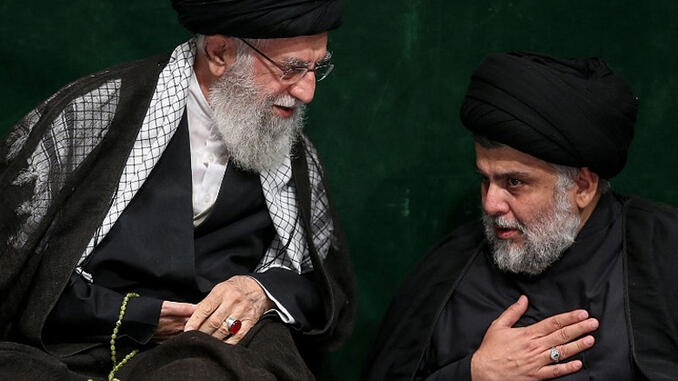
Muqtada al-Sadr is best remembered for being a thorn in the side of the Americans during the occupation of Iraq after the 2003 invasion. During that period he was able to mobilize Shiites in a way few in Iraq were capable of at the time. He even once directed his well-organized Shiite militia to kill American troops. The U.S. at the time debated having him killed, but instead ordered him arrested—which never happened. After the end of the occupation, al-Sadr disappeared from international headlines and now has reappeared as a motivating leader of the May 12th parliamentary elections. Given the results of his voting bloc, Sairoun (“Marching to Reform”), Muqtada al-Sadr is now poised to be a major kingmaker in Iraqi politics.
Muqtada’s influence has stemmed from the political legacy of his assassinated father, Grand Ayatollah Muhammad Sadiq al-Sadr, who founded what became known as the Sadrist movement. After the occupation of Iraq Muqtada was able to use that influence to rally the Shiites in Baghdad against the U.S. occupation and the installation of the interim government which favored exiles such as Ahmad Chalabi and Ayad Allawi. Sadr’s influence spread beyond Baghdad to Najaf and Karbala where his militia gained control of hospitals, schools, and mosques. That control gave him much political influence as he could provide services that the Iraqi government was unable to provide at the time.
The May 12th election results show discontent with Iraq’s sectarian old guard. Sadr’s Sairoun bloc gained the most by winning 55 parliamentary seats, with Prime Minister Haider al-Abadi’s bloc coming in second with 51 seats. Fifty seats went to the bloc represented by Hadi al-Amari, the leader from the Iranian backed Badr Brigades. Iranian influence is an issue Muqtada al-Sadr has been railing against. While his bloc’s strong showing in the election does gain him influence, Sadr has to form an inclusive coalition to govern. He has given attention to forming a coalition to various Kurdish, Sunni, and Shia parties, however he has ignored parties with ties to Iran. This is because he wants to be seen as an Iraqi nationalist who stands up to Iran.
Muqtada al-Sadr’s strong showing in this month’s Iraqi elections caught the U.S., Saudi Arabia, Iran, and even fellow Iraqis by surprise. What he chooses to do with his newfound influence remains to be seen in the coming months. The region will be watching him closely. Even though past dealings with Sadr have been painful, and seeing him on the rise again brings back sour memories, these elections—the largest parliamentary elections in 15 years—were peaceful, free, and fair.
